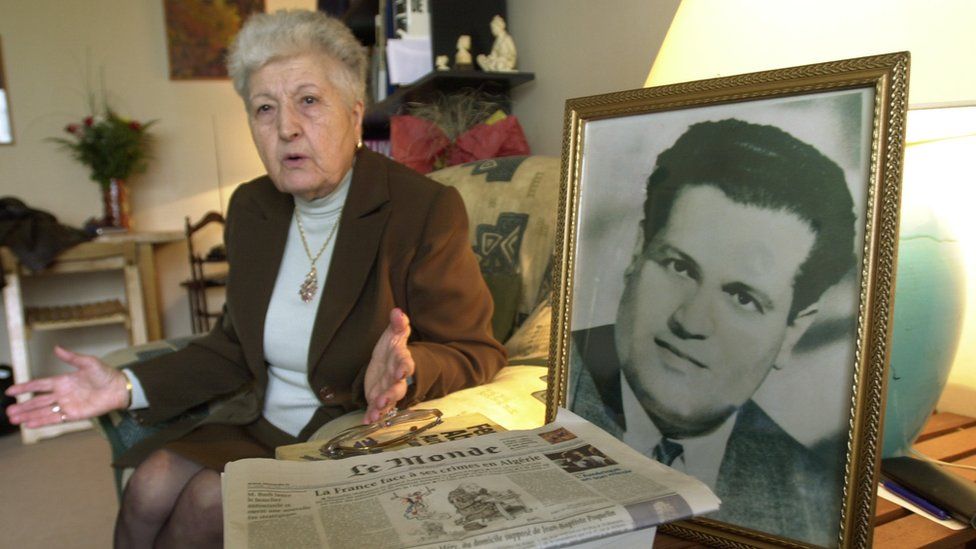Ali Boumendjel: France admits 'torture and murder' of Algerian nationalist
France has admitted that a prominent Algerian nationalist was tortured and murdered by its army more than 60 years ago
Ali Boumendjel was arrested during the Algerian War of Independence in 1957, and his death shortly after was covered-up as a suicide.
But, in a meeting with Boumendjel's grandchildren on Tuesday, President Emmanuel Macron reassessed the death.
"[He] did not commit suicide. He was tortured and then killed," he said.
Algeria gained independence from France in 1962 after a bloody seven-year war.
Boumendjel, a 37-year-old lawyer and nationalist, was active in the campaign against French colonial rule. He was detained during the Battle of Algiers and placed in solitary confinement by French troops.
The activist was then killed and thrown from the sixth-floor of a building in an effort to disguise his death as a suicide.
The BBC's Ahmed Rouaba says that Algerian and French organisations have been campaigning for decades for the truth about Boumendjel's death.
In 2001 Gen Paul Aussaresses, who was at the time head of French intelligence in Algeria, confessed to ordering the killing of dozens of Algerian prisoners, including Boumendjel.
Mr Macron said the latest admission was made "in the name of France".
The rare act is one of a series of measures aimed at improving relations between France and Algeria and the way both countries remember the war that ended colonial rule.
The conflict has cast a long shadow, and it is only in recent years that Paris has begun to acknowledge some instances of torture and abuse.
There are conflicting reports about the Algerian death toll during the war. French historians estimate that up to 400,000 Algerians were killed, while the Algerian government says more than one million people died.
There are also millions of people with links to Algeria living in France, and the conflict remains a deeply contentious issue that has strained relations between both nations.
On Tuesday, Mr Macron reiterated his desire to give "the families of the disappeared" the opportunity to find out the truth about the war.
"No crime, no atrocity committed by anyone during the Algerian War can be excused or concealed," the statement, released by the Elysee Palace, said.
In 2017, during his election campaign, Mr Macron described the colonisation of the North African country as a "crime against humanity". He has also expressed a desire for French-Algerian relations to be forward-looking despite historical enmities.
But the president faced a backlash earlier this year when he refused to issue an official apology for crimes committed during the conflict. He said there would be "no repentance nor apologies" rather "symbolic acts" aimed at promoting reconciliation.
He agreed to form a "truth commission" aimed at shedding light on the conflict after a government-commissioned report recommended doing so.
But the report has since been criticised by the Algerian government, which said it was "not objective" and fell "below expectations".
https://www.bbc.com/news/world-europe-56262963





Post a Comment